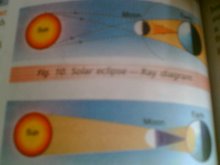
Monday, 21 December 2009
What did the Copenhagen climate summit achieve?
the Copenhagen conference was a unique moment in history.
What Copenhagen changed:
With 110 world leaders present and a single issue on the agenda, there has never been a meeting like this. The countries that brokered the text, the US, China, India, South Africa, Brazil and the EU, also reflects a world in which the balance of power has significantly changed in the last 20 years.
At a fundamental level, the conference redefined the debate between countries in terms of awareness of climate science and support for action. There is no longer any question that climate change is central to the political thinking of every country on the planet.
Public awareness has also massively increased. The vast campaigns run around the world in the run-up to Copenhagen by governments, NGOs and business and the media coverage of the issue and the summit have made addressing climate change widely understood and discussed from the pubs of rural England to the bars of Beijing.
The other very important change is that green growth is now the prevailing economic model of our time. The idea that addressing climate change is bad for business was buried at Copenhagen. Countries from both developed and developing worlds have announced low-carbon economic plans and are moving forward.
What it did not change:
That combination of political will, economic direction and public pressure was not enough to overcome the concerns over sovereignty that many countries have in the context of international law. The final decision reflects the fact that many countries only want to be answerable to themselves. They will co-operate, but not under the threat of legal sanction.
There is no quantified aggregate target for emissions reduction such as the 50% by 2050 that was in early drafts - as it stands, targets are yet to be announced and they may be at the low end of what was promised, locking in ever greater emissions.
The reference to transparency in the text is significant as it will mean that for the first time actions by countries can be assessed globally, but there is no verification of the actions undertaken in the developing world unless they are paid for by the developed world.
Also, there is very little detail on any of the elements it does mention.
What Copenhagen changed:
With 110 world leaders present and a single issue on the agenda, there has never been a meeting like this. The countries that brokered the text, the US, China, India, South Africa, Brazil and the EU, also reflects a world in which the balance of power has significantly changed in the last 20 years.
At a fundamental level, the conference redefined the debate between countries in terms of awareness of climate science and support for action. There is no longer any question that climate change is central to the political thinking of every country on the planet.
Public awareness has also massively increased. The vast campaigns run around the world in the run-up to Copenhagen by governments, NGOs and business and the media coverage of the issue and the summit have made addressing climate change widely understood and discussed from the pubs of rural England to the bars of Beijing.
The other very important change is that green growth is now the prevailing economic model of our time. The idea that addressing climate change is bad for business was buried at Copenhagen. Countries from both developed and developing worlds have announced low-carbon economic plans and are moving forward.
What it did not change:
That combination of political will, economic direction and public pressure was not enough to overcome the concerns over sovereignty that many countries have in the context of international law. The final decision reflects the fact that many countries only want to be answerable to themselves. They will co-operate, but not under the threat of legal sanction.
There is no quantified aggregate target for emissions reduction such as the 50% by 2050 that was in early drafts - as it stands, targets are yet to be announced and they may be at the low end of what was promised, locking in ever greater emissions.
The reference to transparency in the text is significant as it will mean that for the first time actions by countries can be assessed globally, but there is no verification of the actions undertaken in the developing world unless they are paid for by the developed world.
Also, there is very little detail on any of the elements it does mention.
Subscribe to:
Comments (Atom)

















































